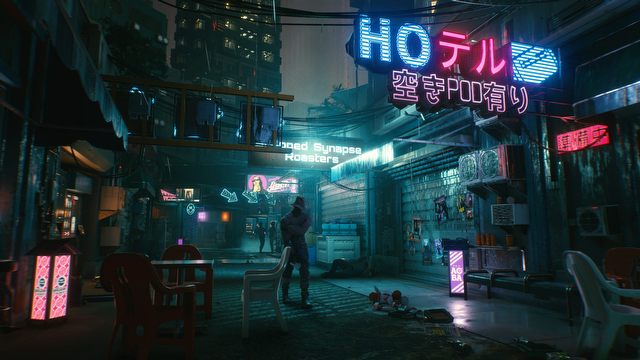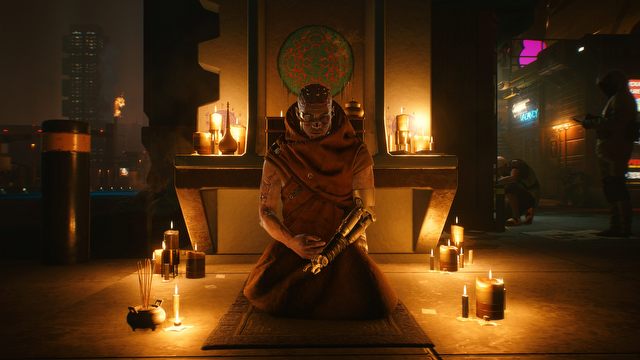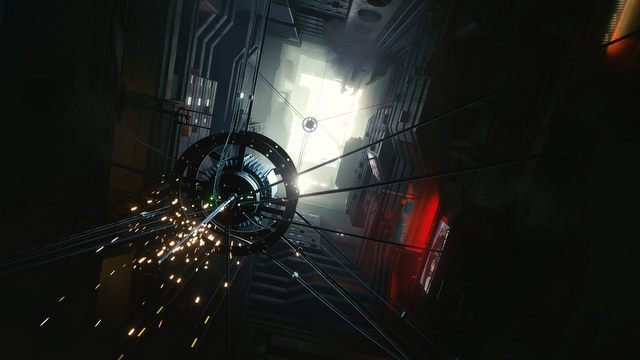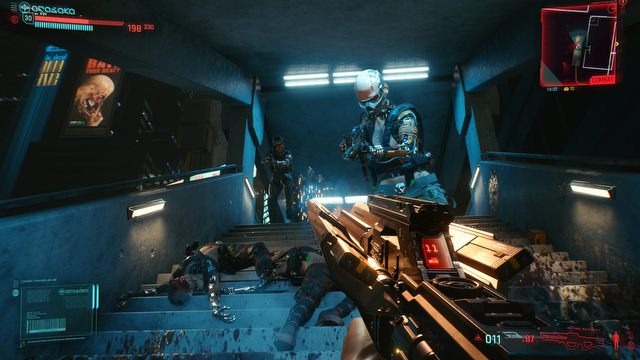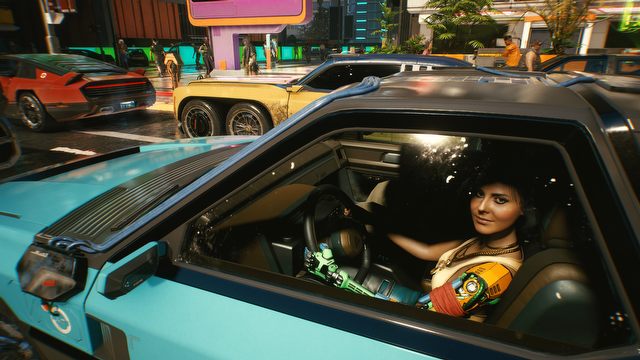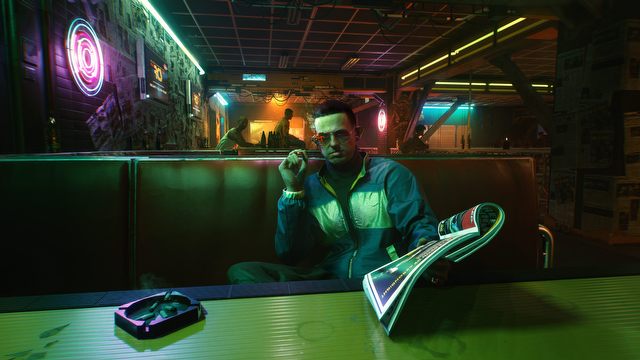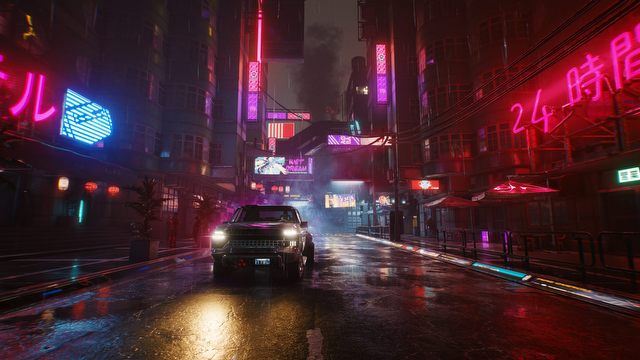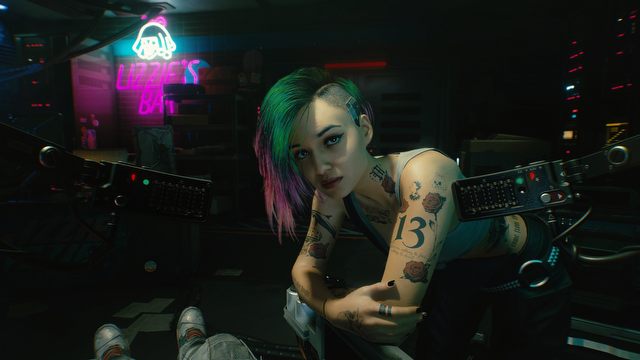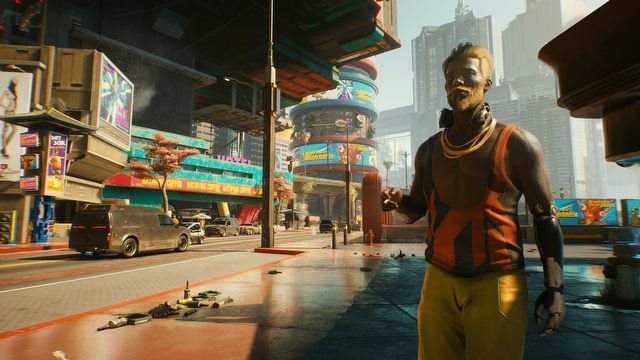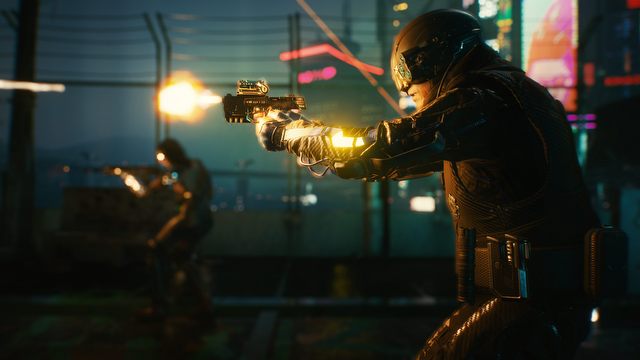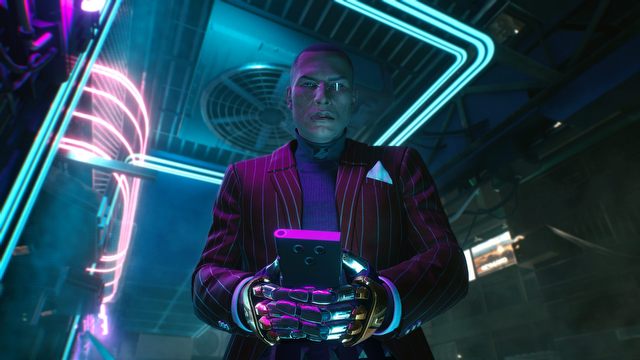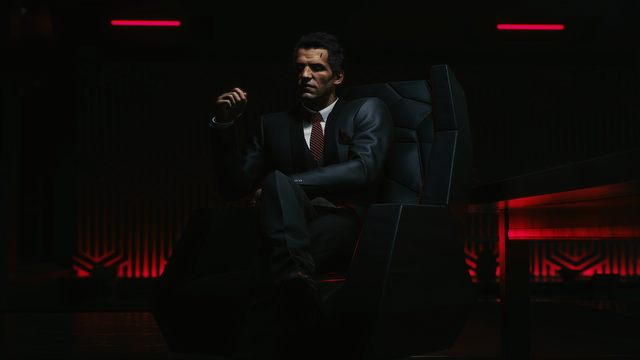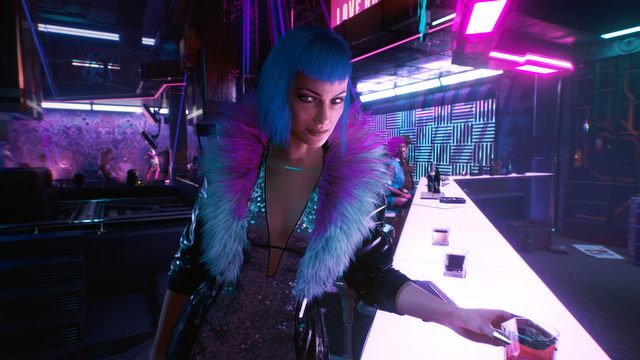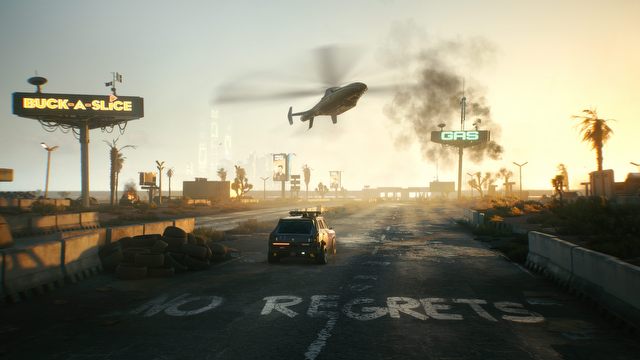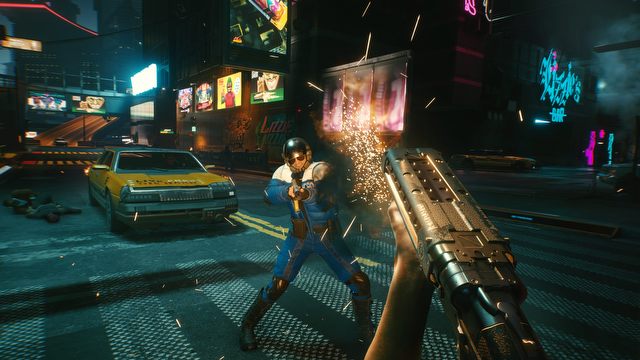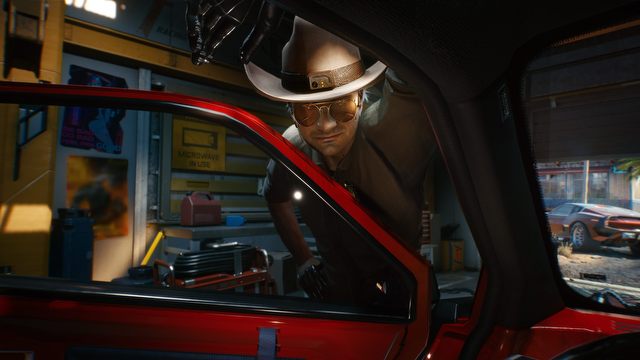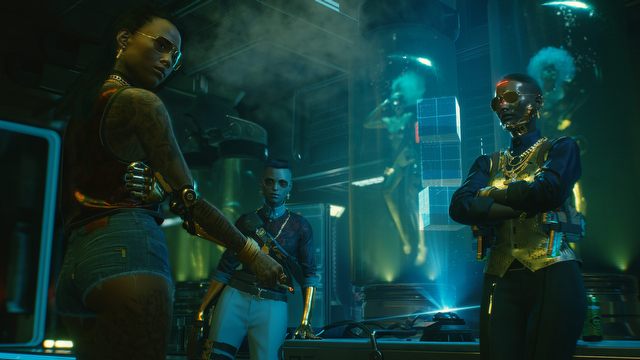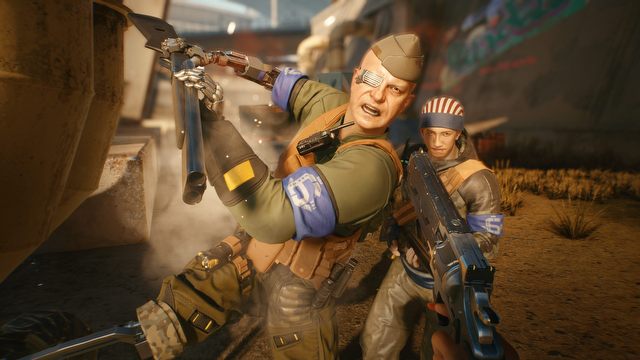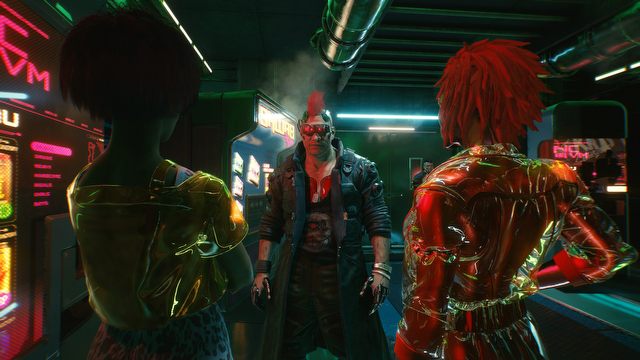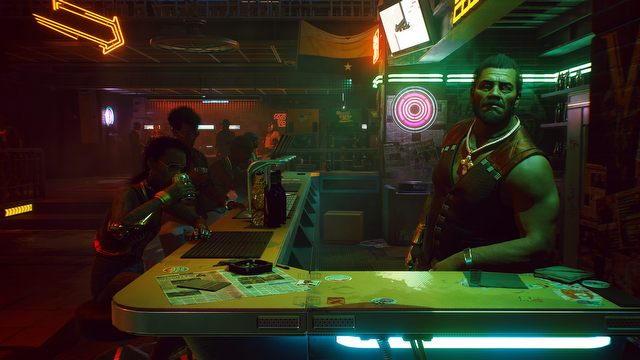Cyberpunk 2077 Hands-on Preview. After Four Hours, I'm as Happy as Concerned
This will be one of the most difficult texts I will write in my life. Describing the highly anticipated game, which is on a collision course with exorbitant hype and expectations, is not easy – because this game currently has some flaws.
This will be a text about a game that has the makings of an outstanding production. At the same time, it's not something that occurred to me as I was actually playing it. This game can shine and glitter, at the same time dropping more question marks than the filler-y seas of Ard Skellig. Here's Cyberpunk 2077 – in many ways outstanding, and yet...
You already know we play as V. We can choose from different classes, which will determine the shape of the prologue, similarly to the first Dragon Age. We select the class in an extensive character wizard, which enables us to assign ability points to different attributes. We can customize the looks of the protagonist using nearly 30 sliders, defining such vital details as the size of nipples and the color of pubic hair. But you won't really see it, unless you go to the character menu. Cyberpunk 2077 is notoriously a first-person shooter, and the camera doesn't move away at all, apart from rare occasions, such as having your eyepiece replaced at ripper doc clinic.
As I said, classes make a difference from the onset. CDPR has prepared different introductions for each of them, and they're all very distinct. Since my choice was Nomad, I started the game in a garage in Badlands, on the outskirts of Night City. In this variant, the introduction was quite long. We also meet Jackie along the way, who accompanies us for most of the mission. Meeting him is also different in each case, and it's only after that moment that we can start learning the story proper.
More RPG than the king
From the very first moments, Cyberpunk 2077 tries pretty hard to show us it's much more extensive than The Witcher 3. Apart from regular XP, we also gain Street Cred – a sort of karma/reputation value that changes our status in the city. The character can be upgraded both by investing in core attributes and perks, grouped into nearly ten different trees. At first glance, it seems that the game is very flexible in terms of character building, since the directions of development are very different. You can completely ignore shooting skills and focus on hacking, which will significantly alter the way you play the game.
On top of that, we, of course, have the augmentations; cybernetic implants installed by more or less skilled and professional doctors around the city. There are obviously quite a few of them, which makes it possible to take a more individual direction of development. To top it off, we can also install mods in weapons and clothes (much like runes in the Witcher 3), and crafting (which I haven't seen yet). This should give you an idea of what the character tab is like.
The perspective changed from third to first-person, but the new game from CDPR is structurally almost identical to Wild Hunt, or any other RPG, for that matter. We have the main thread with feature missions, a hefty number of side quests, question marks to uncover (including loot hidden in crates on roofs, etc.), and all sorts of extra activities, such as aiding the police in fighting crime. There are other similarities to the studio's last AAA – fast travel, for instance, is only accessible via terminals (signposts), or via the subway. You can also speed time up on demand, and call the car with a single button, just like we did with Roach.
Let's talk about conversations
The dialogue system was also copied from Witcher 3, which is not a bad thing, since it clearly shows which dialog choices move the action forward, and which are optional, meant to expand our knowledge about the subject.
Of course, we don't have a single, defined protagonist in this game, which obviously means there are certain differences. A system of character classes brings unique conversation options, which is quite a fresh novelty. In the demo, I saw only two such instances for my class of Nomad, but it's cool the system is there – it should promote replayability of the game.
I also have to report that Cyberpunk 2077 is pretty heavy on time-limited dialog choices, which can sometimes lead to unpleasant surprises (we saw that two years ago, in the mission with Maelstrom gangsters). Funnily enough, I wasn't quick enough in the game and didn't manage to react properly to the rising crisis, effectively dying shortly after. It wasn't nice (I had to rewatch the entire cut-scene) and it made me appreciate The Walking Dead – where silence was just another dialog option – much more than ever before.
Over all, dialogs are probably so far, my favorite thing about Cyberpunk 2077 – CDPR quality is definitely there, and it becomes obvious just after a few minutes that they've invested so much time and resources into conversations and cut-scenes. This, of course, also includes some top-notch voice acting. There's one scene at the beginning, when our characters visit Dexter and discuss a certain job. Jackie is clearly feeling slightly uncomfortable and when he finally manages to muster up the courage and ask a question about the task, you can see his leg trembling in anger. Once his satisfied by the answer, the twitching stops. Of course, it's a small detail, but small details are recently in fashion, and it goes to show how detailed and intricate the conversations are in the game.
Speaking of dialogues, here's a few more words about what most of you probably already know. There are not regular cut-scenes in the game. There are no multiple angles, showing the characters from different perspectives, nor other elements of conversations we grew accustomed to in the games from the Polish studio. All conversations are carried out in first-person, and V is not "welded" to the character we talk to. You can look around, watch other people and so on – you can see the devs wanted to promote realism and immersion. It wasn't a huge problem for me at first, but there's one detail about it that I absolutely abhor: when it's your turn to say something, the camera zeroes-in on the interlocutor with breakneck speed. It looks so bad! What's the point of letting you freely look around, just to have the camera violently spin 180 degrees when it's your turn to say something?
The tour begins
Between story missions, we can explore the city, both on foot and with vehicles. And here we arrive at the first big disappointment. The driving model is not the greatest one I've seen in games (to put it mildly), and it's nowhere near the achievements of Rockstar in GTA. I had rather unpleasant flashback from Sleeping Dogs, and in terms of driving and traffic, Cyberpunk 2077 is definitely closer to the game from United Front Games than from Rockstar. My colleague Mike though it similar to other dogs, the Watch Dogs, and it's surely an apt reference.
The visual design of cars is quite astonishing, badass even, but the driving model itself feels lousy. I was driving the Quadra most of the time, and it seemed glued to the street – there's no weight, no momentum, and it was almost impossible to slide through corners, which should be unthinkable in a cyberpunk world. I was under the impression that these constraints were dictated by the very design of Night City, since the streets of the metropolis aren't very wide. With a more realistic driving model, we would probably be running into obstacles all the time. I also wonder if there will be street races available. Horse racing in The Witcher 3 sucked big time, and I hope the designers won't repeat this mistake in CP2077.
How to disengage safety?
Another mechanic that's sure to cause a stir after the release, is certainly shooting. This is the second of the major, new challenges that CDPR had to face, and it hurts me to say that the gunplay seemed to me completely bland. Seemingly everything is executed in accordance with the genre standards, but at the same time, it doesn't show teeth at any point; the vague element that instantly makes some shooters compelling is apparently missing here. Even in The Last of Us 2, which, after all, isn't a shooter, we feel the power of the liquid blast, tearing our enemies apart with shotgun pellets. Here, everything seemed... flat. The fact that enemies are bullet sponges doesn't help one bit. It even got to the point of silly: I got a "headshot" prompt, but the enemy I had shot was still running around the arena, because the headshot didn't deplete his HP. In short, we got cyberpunk Borderlands. That's not a bad comparison, of course, but the game from Gearbox is much less realistic than Cyberpunk 2077 apparently wants to be.
From the very beginning, Cyberpunk 2077 generated an astonishing hype. I’d even venture to say the expectations are so high that it’s impossible to satisfy them. And when I first sat and played the game for 4 hours, my general impression was like “Is that… it?”
Cyberpunk is set to be a really good game, but you can clearly see CD Projekt Red struggles with the elements that are new to them. I’ve been saying for two years that the driving model looks rather weak, and indeed, I felt like playing Watch Dogs. Hacking is too complicated, and I haven’t been able to fully comprehend it during the short playthrough, which is sad, cause I want to play as Netrunner. The city is only alive in the places where you’d expect it to be – once you get further away, people magically disappear.
On top of that, we have chaotic and illegible inventory, interface that’s a little too heavy on all sorts of information… Fortunately, I completely fell for the story that Cyberpunk 2077 wants to tell us. If there’s one thing I could not say a single bad word about, it was the story and the narrative, which, in first-person, I found even more compelling than that in The Witcher 3. I can’t wait for the journey with V, whom I’ll make a demigod in the character wizard, mark my words. And that I won’t be able to see him throughout the game too often? Well, we change our hairdos, even though we can’t really see ourselves either.
Night City is at once very pretty and very mediocre. At the same time, moving around isn’t boring. The town is full of thugs, freaks, people with bizarre stories, like that one dude who broke his testicles with a faulty Mr. Stud implant and needed to visit a clinic. I killed a bunch of lunatics from Maelstrom and I petted a cat. Am I thriller with Cyberpunk 2077? Nope. But after sleeping on it, I think the greatest enemy of this game will be the hype.
P.S. Excuse my French, but the soundtrack is just fucking amazing. I love the crazy blend of songs this game serves, and you can tell there’s some overwhelming talent involved in the creation. TOP NOTCH!
Michael Manka
The new game from CDPR will certainly benefits from stealth mechanics, and other solutions that allowed us to complete missions without killing anyone in Deus Ex games. Games from that series were never great shooters either, but at the heart, they were not shooters, but rather stealth games. In Cyberpunk 2077 we will, of course, be able to sneak, but there will be moments when we'll need to reach for lethal weapons, regardless. Anyway, the ghost mode may be a salvation for players who will find the gunplay unappealing – I admit I haven't paid much attention to it in my short gameplay. I simply was too curious to feel what shooting is like, because that's something CDPR have never done before. Secondly, a stealthy approach is always more time-consuming, which isn't actually desirable during a time-limited gameplay demo. Not with a game like this.
Rather predictably, hacking seemed pretty important in the stealthy approach, and the game gives us a handful of possibilities to manipulate cameras, turrets, electronics, and enemies themselves. Initially, we're only able to distract enemies, but after investing in more skills, our capabilities noticeably increase. A good predictor of what Cyberpunk 2077 will enable us to do is the obligatory VR tutorial, which we have to complete shortly after the launch. There, we can draw one enemy to another one, and then blow them both up with the remote detonation of a grenade carried by one of them. Also, we did it all via a hacked camera, making us completely untraceable for enemies. It all looked pretty fantastic, and I'll probably play as Netrunner in my first playthrough.
I liked it
As for my overall perception of Cyberpunk 2077, I definitely felt satisfied. The new game from Warsaw-based studio can surprise you with the diversity of the main missions and the fantastic dialogs, expected from this studio. The authors also managed to introduce some interesting solutions, such as the Braindance module, in which, like Batman in Arkham series, we can manipulate recordings of memories to get some answers. V acquires a headset necessary to perform such analyses, so there will certainly be more instances like that.
I also dig the general vibe of this game, although some of you might find the exaggerated, flashy world a little too much, especially if you liked the cold, slick design of recent Deus Ex entries. The creators consciously went in a completely different direction and served up a vision of a futuristic metropolis from movies from the 80s, where colorful outfits, crazy hairdos and ubiquitous kitsch dominated the streets and night clubs. There is, of course, nothing wrong with this, but I sometimes got the impression it was a bit too much; virtually all the people have augmentations, more or less conspicuous. In the aforementioned Deus Ex, this would be unthinkable.
The music also builds the atmosphere in a great way, both the original score and the songs played in the car. So far, it seems the best element of the game. Marcin Przybylowicz, Paul-Leonard Morgan and Piotr Adamczyk created a hellishly energetic mix of sounds, blending together completely different genres and soundscapes. The car radio was also really fun, because the creators approached it differently. Rather than licensing the existing songs, which is the norm for the Grand Theft Auto series, they have simply hired a whole host of artists to prepare tracks exclusively for the game, including Run the Jewels, Grimes, or Refused. I loved the diversity of music featured in the game. There's rock, pop, techno, and extreme metal, verging on the edge of listenability. A fantastic thing, especially since there's ten radio stations! Kudos!
But…
Unfortunately, the first experience I had with the game was far from flawless. What worried me most was what I've written about before – bland driving model and uninspired shooting mechanics, seasoned with a Borderlands feel. Sure, this is an RPG, so there are more important elements, but at the same time, we will spend most of the game shooting and driving, so it'd be nice if it at least felt alright. That's not all, though.
The prologue seemed rather ill-conceived. We're under constant barrage of numerous tutorials, and there's not really enough time to let it all sink in. It won't be a huge problem for advanced players, since the mechanics are rather predictable, but new players might find it a little too much to handle. Even I felt a little overwhelmed, and had to check some tutorials from 15 minutes earlier, because I couldn't properly internalize it the first time around. I do realize you can't keep players in the tutorial forever, but at the same time I remember Witcher 3 did a fantastic job introducing players to its core mechanics and story, but then Cyberpunk 2077 is sure more complex than Wild Hunt was.
I also don't like the HUD, which feels rather illegible. This is actually quite problematic, since interface hasn't changed a lot since a year ago, when it already was criticized by some of you. I just hope the game will have as much configuration options as The Witcher 3 had. They say you can get used to anything, and there is a lot of truth to it, but the first thing I will change, if possible, will be the colors of bars and icons, which get completely lost in the noise.
The setting
I want to finish off with the most important element – the city. Night City is already looking great and I know that after the release, I will spend a lot of time exploring it. However, while the static elements of it are ok, the movement isn't as convincing. People pop-in and out. There are some locations – mainly the ones that are part of carefully planned missions – that are completely overcrowded. When we get into a car, on the other hand, the city becomes bizarrely empty. The same goes for traffic. Other cars move around sluggishly, and there's really not many of them for such a metropolis. I also noticed some weird stuff going on as I overheard the conversation of a random NPC talking over the phone on the street. The game generated two of the same types of vehicles in front of me over and over again, but neither of them ever drove past me. All of them, without exception, turned into a side street, as if the street next to me was closed.
Perhaps it was a simple bug that can be fixed in a single string of code. I certainly hope so, since Cyberpunk 2077 has quite a few bugs to get rid of. The recent delay is certainly justified. After what I saw, I would never have believed that the game could be ready in September, let alone April. The Reds still have a lot of work to do to get it all right.
Since you've made it through the entire article, you deserve learning more about what I mentioned at the beginning. Cyberpunk 2077 is, in general, a very good game, but also not without some flaws, which are now a bit of a concern. So, we're four months ahead of the release, and I realize there's still time to improve things. But is there enough time? It's unlikely the driving and shooting mechanics will get a major overhaul, so we'll probably have to live with it. The remaining weeds will hopefully all be eradicated.
There's a good chance this will be a similar release to The Witcher 3, and that the pros will significantly outweigh the cons. Did horse racing or repeatable character models bury Wild Hunt? Certainly not. On the other side of the coin, we've had a fantastic story with great dialogs. I expect the same scenario to repeat this time, but it will also be much more difficult than it was with Geralt. There's a lot of uncharted territories for CDPR in Cyberpunk 2077, and they'll need quite an effort to match their opus magnum, The Witcher 3. Chances are, of course, that it will actually happen, but as I mentioned at the beginning, there's many question marks still. Given my immense sympathy for this team, I hope they will all be answered.
